"When Evil Lurks" is Argentine director Demián Rugna's second self-written and self-directed film, following his 2017 horror movie "Terrified," a sleeper hit in the genre that you should not miss if you're a horror enthusiast. The screenplay for "When Evil Lurks" was crafted in 2019, drawing inspiration from the forgotten impoverished farmers in remote regions. During that period, the director gained recognition with "Terrified" and had established connections, contemplating a remake of the film given its relatively low production cost at the time. However, the sudden outbreak of a pandemic halted the progress of the remake project. Later on, the script for "When Evil Lurks" caught the attention of the horror specialist Shudder, prompting their investment in the film's production. This venture also marked Shudder's inaugural investment in a Spanish-language horror film.
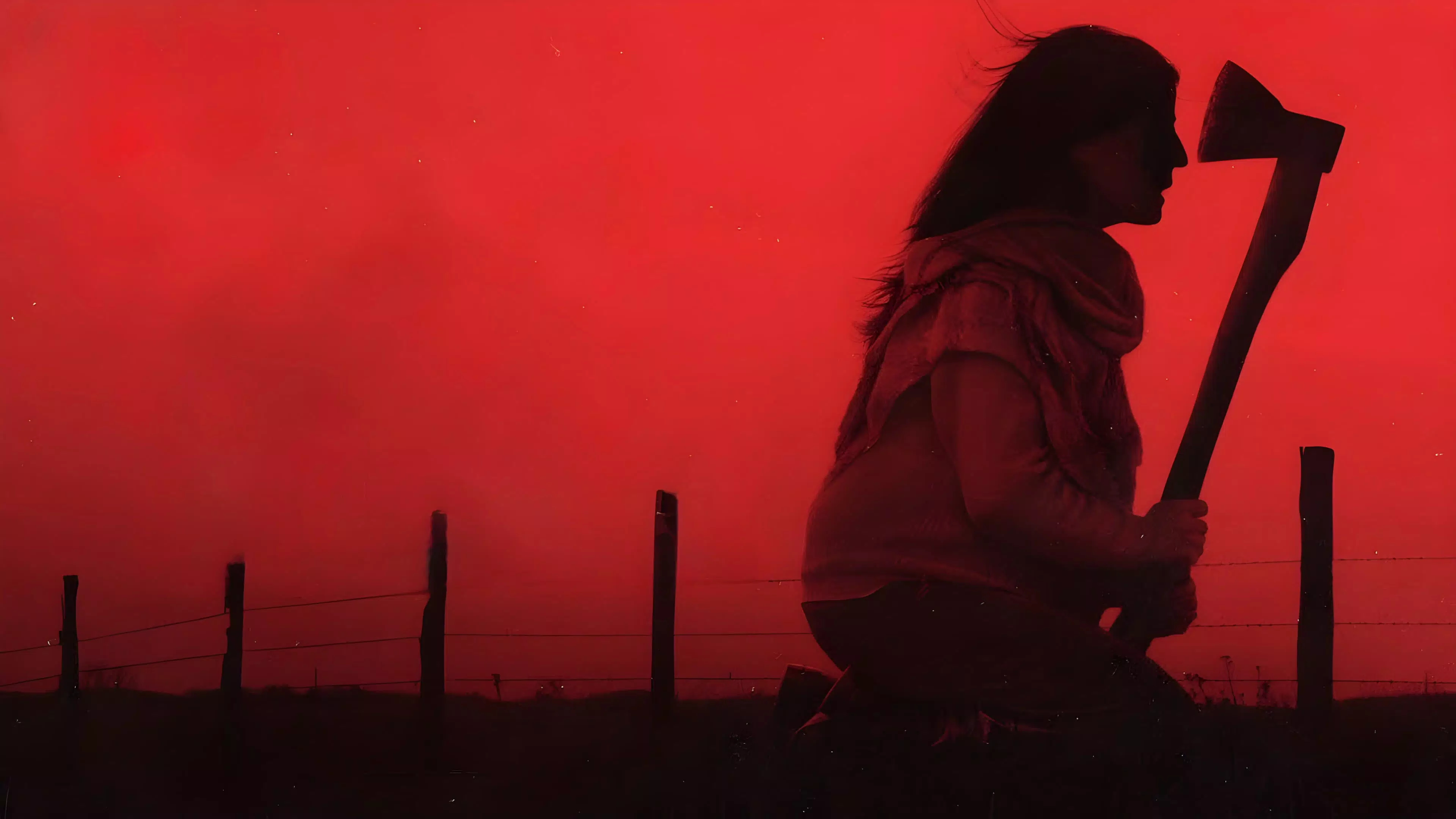
As a dedicated enthusiast of horror films, my experience with "When Evil Lurks" left me with mixed feelings. On one hand, the movie stands out among exorcism-themed films due to its unconventional and innovative approach. It could be aptly termed a "road horror film." Departing from the usual clichés of exorcism rituals involving chanting, naming, and banishing, or even a specifically designed demon with a name, this film takes a different path. Yet, it is filled with an intense sense of dread, featuring a remarkably dynamic narrative and visually striking scenes that provide profound physiological and psychological impact. Its captivating nature constructs an entirely new and comprehensive worldview, establishing its independence within the genre.
On the other hand, the male lead in the film is genuinely aggravating, fitting the stereotype of a character with decreased intelligence in horror movies. He not only inadvertently caused the death of his former wife's family but also executed a "brain-dead axe search" operation, an act of extreme stupidity. Although the director explained that this character was intended to portray a life failure, someone who attempted to save others like a hero, only to destruct in incompetence, it's challenging for such a character to resonate with the audience; it rather provokes antipathy.
This article delves into the film's hidden worldview, dissecting aspects that might have eluded the audience's understanding.
(*Note: The following content is purely fictional; please refrain from drawing direct parallels to reality.)
Worldview: God is Dead
It all started 12 years ago when Mirta was still young. Her husband was a pastor, and they had a church. However, they were not devouted believers but rather faithless fraudsters. They hired actors to pretend to be possessed by demons while faking exorcisms to make money. Until one day, Buenos Aires witnessed its first real possession, right inside their church. The appearance of this possessed individual signaled the advent of the demon era.
Before this period, societal development and technological advancements had significantly weakened people's faith in God. There was a growing practicality among individuals, relying more on technology and less on the notion of a divine figure to uphold moral standards and societal order. The concept of God became intertwined with people's belief in truth, goodness, and devout faith.
The appearance of a demon in the church shattered people's beliefs, leading to the complete collapse of faith in society. The era of God and the church ended, and the era of demons officially commenced. This also corroborated Nietzsche's phrase - "God is dead." This is why the male lead, at the beginning of the film, angrily utters the perplexing phrase, "The church is dead." Because God and the church had died twelve years ago.
Rotten · Evil · Demon · Cleaner
After the appearance of the possessed individual, the conflict between humans and demons began. People gradually realized that demons were categorized, and the birth of a demon required a lengthy process. The person chosen by a demon is called "rotten." The body of the rotten individual gradually decays, eventually giving birth to the physical demon entity. Rotten releases the "spirit" of the demon, infecting surrounding entities like a virus. The infected creatures become "evil." Evil can be a possessed human (possessed) or an animal. Although evil doesn't transform into a demon, its brain and thoughts are controlled by the demon, leading to lies, deceit, and slaughter. The demon is the evil entity born from the rotten. The transformation from rotten to demon is the "descent of the demon," and each demon's descent brings catastrophe to the world.
To combat demons, humans have a specialized profession - "cleaner." They are familiar with demon tactics and possess specialized equipment to eliminate demons and eradicate evil. Judging by the attire and equipment of cleaners, it's an ancient occupation. The struggle between cleaners and demons has persisted for millennia, unknown to ordinary people. It wasn't until twelve years ago, after God's death and the first appearance of a demon, that cleaners became known to the public.
Mirta experienced the demon descent twelve years ago. That experience exacted a painful toll on her and changed her life. She lost her husband and witnessed something she never believed in actually existing. She acquired faith, but it was faith in another type of God that died the moment she believed in it. Thus, she decided to become a demon cleaner. Living alone in a house far from the city, without electricity, without relatives. Like the police, cleaners belong to a special public service role. Suspected cases of rotten or evil appearing in various locations are reported, and cleaners are dispatched to eradicate these "stains."
From the reply of the staff at the small-town police station, it took them a year to call a cleaner, indicating that the human world was not heavily influenced by demons, especially in this remote place where demons hardly appeared. It also implied that people remained indifferent to morality and order. The values and beliefs of society remained fragmented, subtly mocking the government's rigidity and perfunctoriness.
Seven Rules
In the prolonged confrontation with demons, people established seven rules:
1.Do not use electric lighting.
2.Do not stay close to animals.
3.Do not take anything near it.
4.Do not harm them.
5.Do not call them by their names.
6.Do not shoot them with firearms.
7.Do not be afraid of dying.
These rules safeguard against the demon's "spirit" infecting people. People must not believe in anything related to demons, including the creatures' lies, the tricks they use to lure people, and their manipulation. A firm and unyielding stance against demons is the only way to avoid possession.
The appearance of a cleaner signifies the end of ordinary people's lives. Once cleaners arrive, ordinary people lose their ability to choose freely. People become passive observers, merely following cleaners' commands, a metaphor for people's inability to resist the changes in society, loss of freedom, and the stringent control of various policies by the government.
Plot Recap: 72 Hours of Escape
1 The Demise of 'The Cleaner'
11 years later, in a remote town in Argentina, signs of possession start appearing in María's elder son, Uriel, as his body gradually decays. Seeking help, María reports to the local police, waiting for a dedicated cleaner to end her son's life. However, the police officer in charge lacks faith and belief in the occurrence of a demon case in this impoverished area, delaying the summoning of a cleaner for a whole year.
Now, on the first night of the story, a Russian cleaner arrives to "clean" Uriel. However, he is brutally murdered in the forest. This event alarms Pedro and Jimi, two brothers. Ultimately, Uriel's younger brother confesses to infecting his brother with 'rotten,' killing the cleaner sent, chopping his body into pieces, some fed to pigs, and some consumed by him. Moreover, the missing mother is revealed to have become part of his brother's remains, explaining the bullets from a .38 caliber gun by rotten Uriel's bed.
Pedro and Jimi inform the town mayor of the cleaner's death but are instructed to wait for the next cleaner and not to interfere. They team up with a neighbor, farmer Ruiz, who distrusts the government's intentions, suspecting a conspiracy to force them off their land. Together, they vow to protect their property.
The next day, Ruiz decides to dispose of rotten far away, but the plan fails, and evil ensues. Later, at dusk, evil possesses a sheep on the farm, resulting in a confrontation where Ruiz, lacking faith, kills the evil. However, evil takes control of his wife, leading her to kill Ruiz before taking her own life under evil's command.
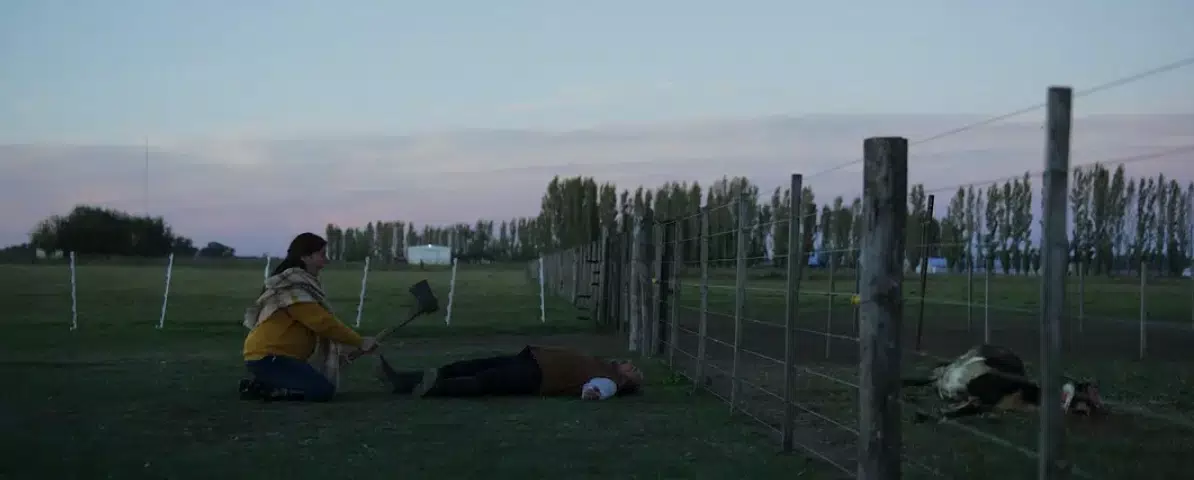
2 Escape: The Land of the Rotten
Fleeing from the tainted land, Uriel's younger brother seeks Pedro and Jimi's help, informing them of the death of the farmer and his missing mother. Pedro and Jimi realize the extent of the corruption and that evil will continue to lurk and spread.
On the third day, Pedro makes a misguided decision to take his ex-wife and children to a safe, demon-free place. However, his motives are unclear to others, prompting his ex-wife's soulful questioning as to why he intrudes on her space. Unknowingly, they become agents of evil's propagation. The family dog gets infected by Pedro's clothes, turning into evil and attacking their daughter.
The film addresses Argentina's strict regulations regarding children in film, steering clear of graphic violence. When shooting scenes of children bleeding, they used blue liquid, later color-corrected to appear as red blood.
The situation escalates rapidly, resulting in the ex-wife's husband violating the Seven Rules and his inevitable demise. Miraculously, their daughter, bitten by the evil dog, appears unscathed, but Pedro recognizes she's not his daughter. Their souls have been consumed by the demon.
Subsequently, possessed by evil, the husband attempts to ram Pedro's ex-wife with his car. Pedro, with his autistic elder son and younger son, flees with his mother, joining Jimi in their escape. While on the road, Pedro's mother tries to educate the younger son about the Seven Rules but inadvertently breaks the fifth rule. The child begins chanting the name "Azrael," an Islamic angel of death, inadvertently calling upon the demon. Jimi finds refuge for them at Mirta's house, a renowned cleaner who has firsthand experience with demons.
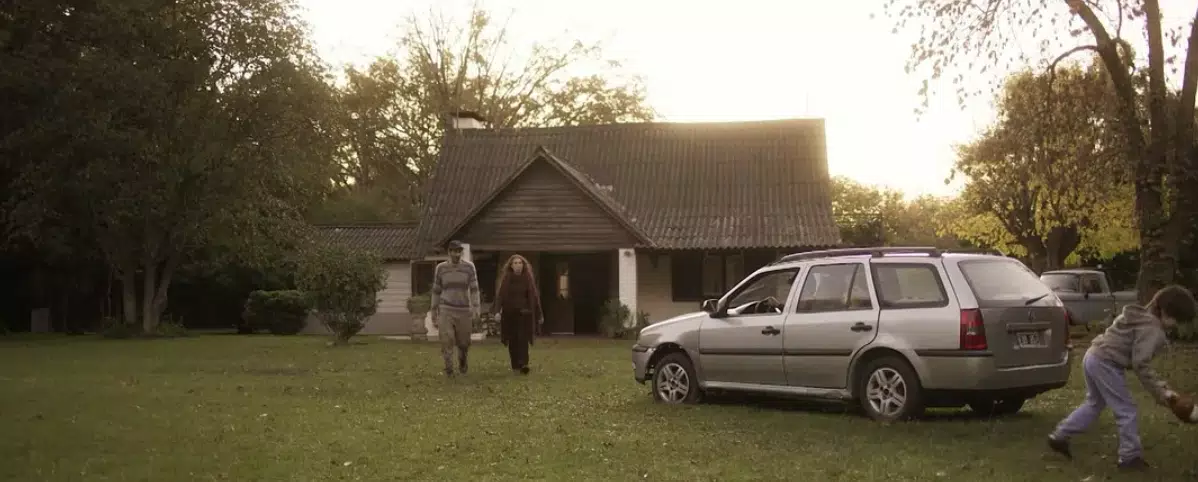
3 Birth: Birth of a demon
The night unfolds, revealing that Pedro's autistic son is the vessel for a demon. Mirta senses this, but Pedro and Jimi remain unconvinced.
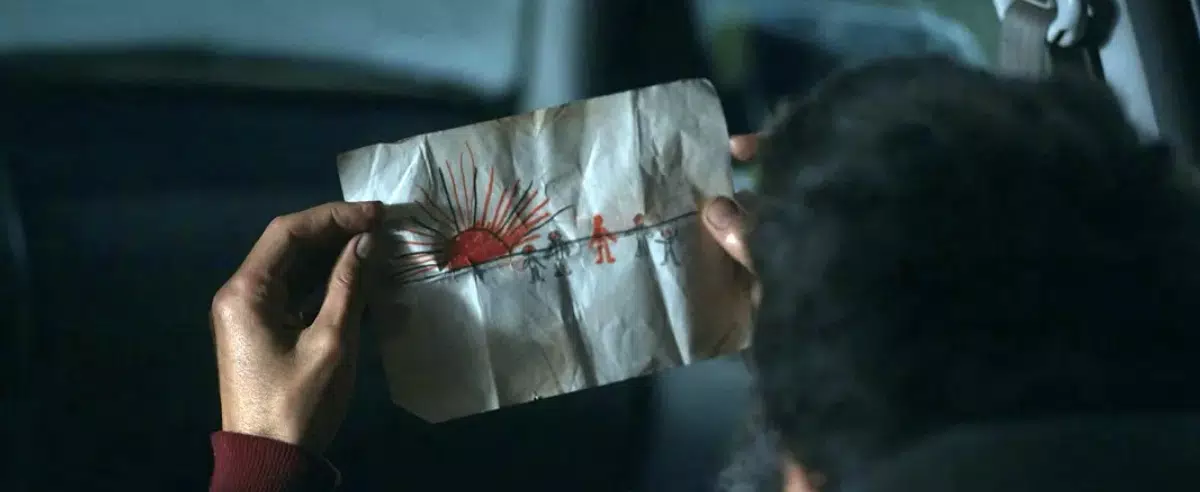
In the dead of night, Pedro's ex-wife, bloodied and battered, arrives and takes the younger son away. As Pedro and Mirta search for the child, they leave Pedro's mother and autistic son at home. Jimi locates Pedro's ex-wife, who has killed the children and, in a despairing moment, tricks Jimi before dying at his hands.
In Mirta's home, the autistic son becomes agile and free, indicating the demon's release. Meanwhile, Pedro and Mirta arrive at a school where the birth of a demon is imminent. The paper-cut patterns on the classroom windows foreshadow the demon's arrival, revealing it to be a meticulously planned conspiracy.
Children and animals, as well as the weak-willed, are most susceptible to demonic possession. The kids at the school, manipulated by the demon, conceal the scent of 'rotten' with lime powder. Mirta, experienced in demon detection, exposes their lies. Unveiling the truth, the children have killed adults and teachers, burying the bodies under the stage to conceal the scent of 'rotten.'
Pedro makes another critical mistake, momentarily misled by a girl's words, allowing the children to kill Mirta. Faced with no choice, Pedro crushes 'rotten,' but the demon is already born, leading to a horrific climax where the demon ascends.
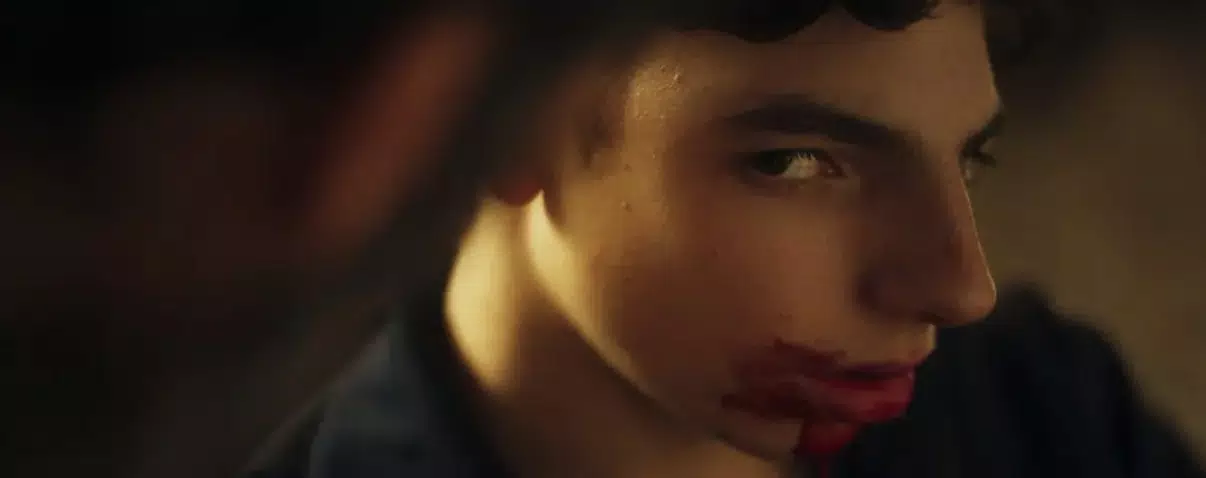
Morning rises, bringing an eerie chill as the demon rises, accompanied by evil children, welcoming their new king while humanity faces another catastrophe. Pedro's mother has vanished, and as the demon ascends, they can only return to their hometown. As Pedro feeds his elder son, he discovers traces of his mother, devoured by the son. The haunting gaze of his elder son hints that he has been a puppet of the demon all along...
4 God is Dead
"When Evil Lurks" narrates a tale of despair. Pedro believed he was saving himself and escaping, oblivious that every step was part of a demon's elaborate plan, fulfilling the demon's ultimate desires. His farm, forgotten by society and failed by the government, becomes the perfect breeding ground for demons.
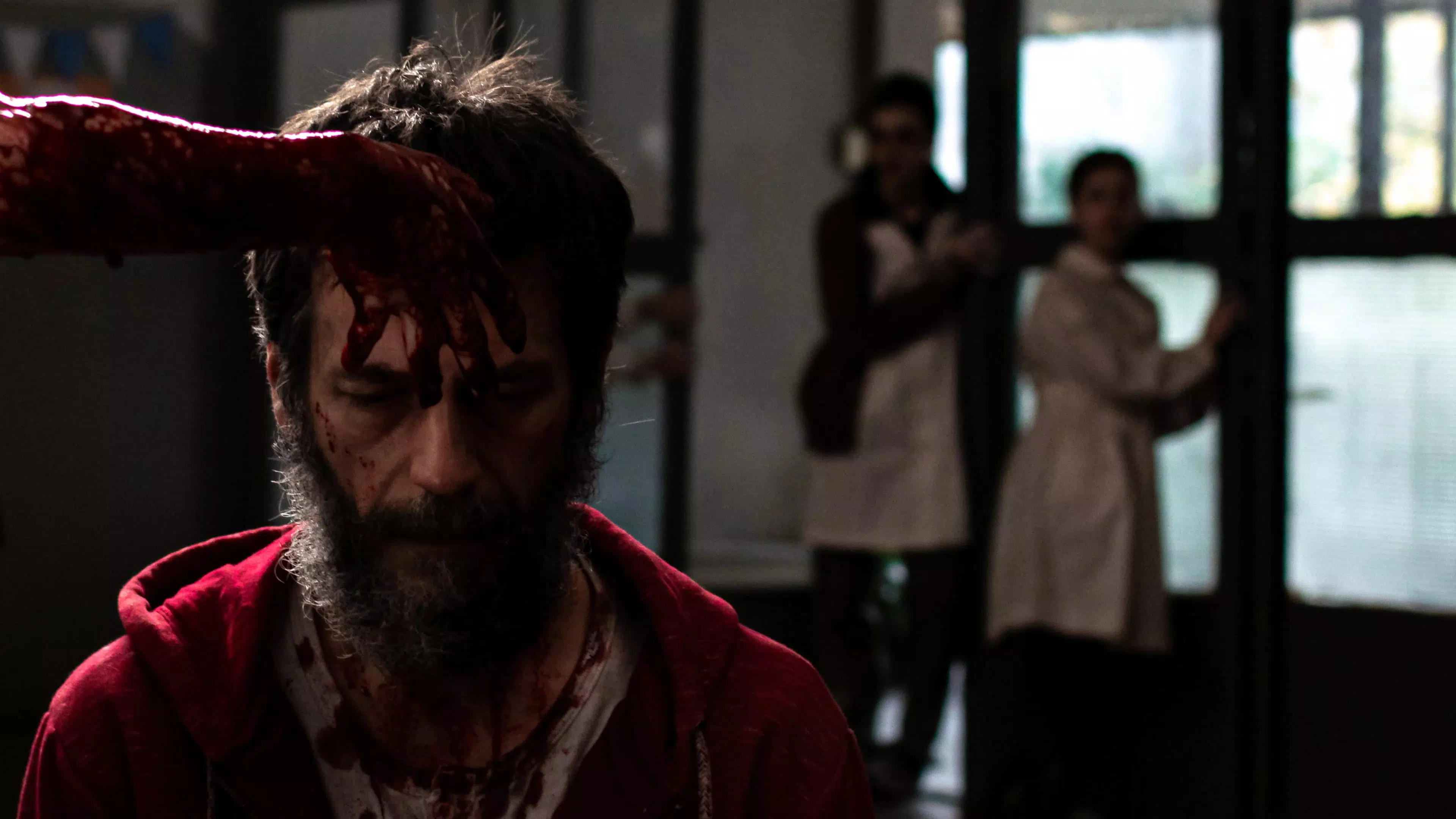
Pedro lacks faith, clinging to guns and electricity despite warnings. He lacks morals, abandoning his family after his son's autism diagnosis. He may not be 'rotten,' but he's chosen by the demon. In the end, the demon doesn't kill him; he serves the demon perfectly, marked by the three bloodstains on his forehead.
The movie portrays a bleak, dystopian world lacking hope, one that exists without a clear presence of God. However, despite these themes, it doesn't necessarily fit the categorization of a religious film, as it doesn't explicitly mention any deity or name the demon. The concepts of 'God' and 'church' within the film serve more as metaphors, symbolizing morality and human ethical norms. Faith in this context represents the enduring presence of noble qualities and a longing for the beauty inherent in life.
"God is dead," and "collapsed faith" refers to the decay of morality and values, leading to selfishness, distrust, and cruelty. The shattered values and moral compass in society are what the film ironically criticizes. People no longer have faith, focusing solely on themselves. The land is filled with apathy, suspicion, and lies, making it the demon's territory. So, why did God die?
Nietzsche said: "Thus spoke the devil to me, once on a time: 'Even God has his hell: it is his love for man.' And lately, did I hear him say these words: 'God is dead: of his pity for man has God died.'"



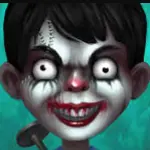

Share your thoughts!
Be the first to start the conversation.